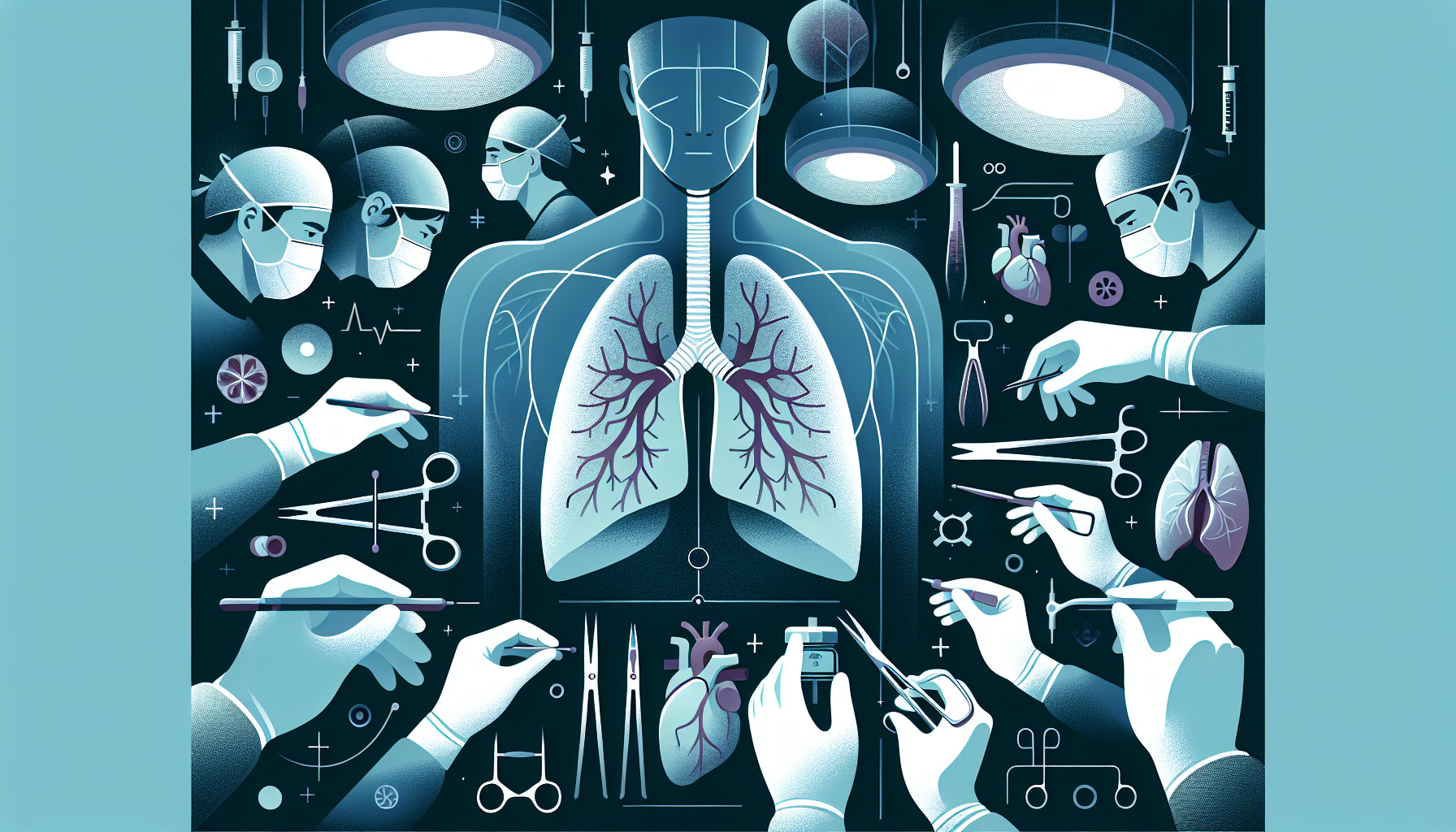Our Summary
This research looked at the risk of infection being passed between two people who have both received lung transplants and are in a relationship. They compared the rates of infection in these couples to individuals who had also had lung transplants but were not in a relationship with another transplant recipient. After studying twelve couples over a period of 65 total relationship years, the researchers found that there was no significant difference in the rate of bacterial infections, treatments to prevent organ rejection, or hospitalizations. They also found that there was no transmission of bacterial colonization from one partner to the other. However, there were five cases where both partners contracted the same viral infection at the same time, and three instances where both partners had a reactivation of cytomegalovirus, a common virus that can cause serious problems in people with weakened immune systems. The researchers conclude that couples where both partners have had a lung transplant do not have a higher risk of bacterial infections, but they should be aware that they may be at risk of transmitting viral infections to each other.
FAQs
- Does being in a relationship with another lung transplant recipient increase the risk of bacterial infections?
- Can lung transplant recipients transmit bacterial colonization to their partners?
- Are lung transplant recipients at risk of transmitting viral infections to their partners?
Doctor’s Tip
A helpful tip a doctor might tell a patient about lung transplant is to be aware of the potential risk of transmitting viral infections to a partner who has also had a lung transplant. It is important to practice good hygiene, such as washing hands regularly and avoiding close contact when either partner is sick, to reduce the risk of spreading infections. Additionally, staying up to date on vaccinations and following medical advice for preventing infections can help protect both partners after a lung transplant.
Suitable For
Patients who are typically recommended for lung transplant are those with end-stage lung disease, such as cystic fibrosis, chronic obstructive pulmonary disease (COPD), pulmonary fibrosis, pulmonary hypertension, and bronchiectasis. These patients have severe lung damage and have exhausted all other treatment options. Additionally, patients must meet certain criteria such as good overall health, absence of significant heart or liver disease, absence of active cancer, and ability to comply with post-transplant care and medications.
Timeline
Before lung transplant:
- Patient experiences worsening symptoms of lung disease, such as shortness of breath, coughing, and fatigue
- Patient undergoes extensive medical evaluations and testing to determine if they are a suitable candidate for a lung transplant
- Patient is placed on a waiting list for a donor organ
- Patient may experience worsening health and increased hospitalizations while waiting for a transplant
After lung transplant:
- Patient undergoes surgery to receive a new lung or lungs
- Patient is closely monitored in the hospital for complications and signs of rejection
- Patient takes immunosuppressant medications to prevent organ rejection
- Patient goes through a period of rehabilitation to regain strength and lung function
- Patient continues to be monitored closely by medical professionals for the rest of their life for potential complications and rejection
- Patient may experience improved lung function and quality of life, but also may face challenges such as infections and side effects from medications.
What to Ask Your Doctor
- What is the success rate of lung transplants?
- What are the potential risks and complications associated with a lung transplant?
- How long is the recovery process after a lung transplant?
- What medications will I need to take after the transplant and what are the potential side effects?
- How often will I need to follow up with my transplant team after the surgery?
- How can I reduce my risk of infection after a lung transplant?
- Are there any lifestyle changes I should make after the transplant to improve my long-term outcome?
- What signs or symptoms should I watch for that may indicate rejection or complications?
- How will having a lung transplant affect my ability to travel or participate in certain activities?
- Is there a possibility of transmitting infections to my partner if they have also had a lung transplant?
Reference
Authors: Rademacher J, Fuge J, Welte T, Gottlieb J, Suhling H. Journal: Transpl Infect Dis. 2018 Apr;20(2):e12853. doi: 10.1111/tid.12853. Epub 2018 Feb 22. PMID: 29377402
